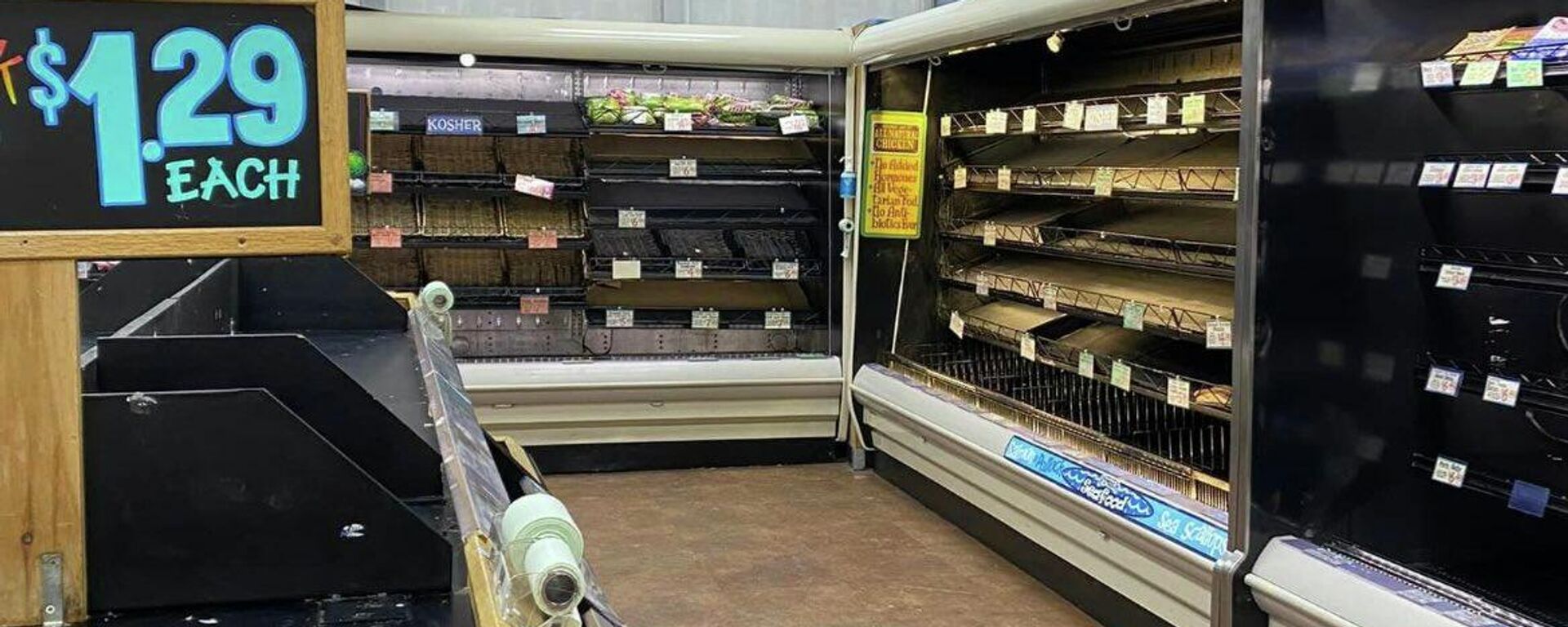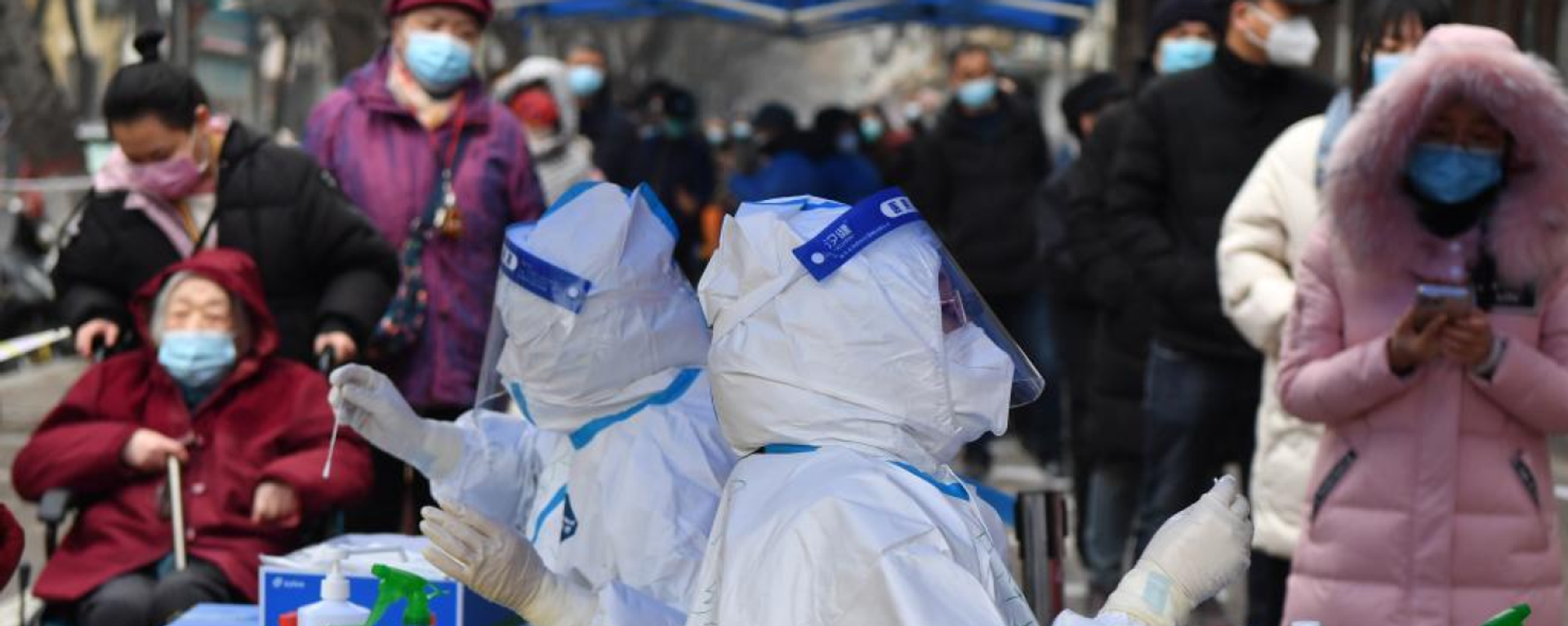https://sputnikglobe.com/20220112/malaise-days-are-back-us-consumer-prices-soar-sharply-to-highest-level-since-1982-1092213107.html
Malaise Days are Back: US Consumer Prices Soar Sharply to Highest Level Since 1982
Malaise Days are Back: US Consumer Prices Soar Sharply to Highest Level Since 1982
Sputnik International
High inflation and a $29 trillion debt burden have driven concerns on Capitol Hill and the Treasury about the administration’s spending agenda. President Joe... 12.01.2022, Sputnik International
2022-01-12T19:04+0000
2022-01-12T19:04+0000
2022-08-06T13:36+0000
inflation
https://cdn1.img.sputnikglobe.com/img/07e6/01/0c/1092213080_0:127:3187:1920_1920x0_80_0_0_055304fa7a963e82beac01197b5d3cc6.jpg
Inflation jumped to a new high last month, with the US consumer price index up 7 percent year-on-year in December, its highest level since June 1982, according to fresh Department of Labor statistics released Wednesday.The CPI – the measure of prices for a basket of everyday goods and services, grew by half a percentage point between November and December after climbing 0.8 percent between October and November.The US faces a rarely seen perfect storm of negative economic factors – including surging costs for food, rent and vehicles, on top of the global supply-chain crisis and shortages of workers – particularly in menial, low-paid and underappreciated jobs.Economists warn prices for basic goods may continue their upward march as the supply chain crisis, blamed on Covid shutdowns, continues to wreak havoc on the production and delivery of everything from food and consumer goods to key components for high-value items like cars and smartphones.US Home prices have shot up particularly sharply over the past year-and-a-half amid reports of a calculated move by Wall Street to buy up real estate en masse to become 21st century billionaire landlord barons.The Federal Reserve is expected to raise interest rates at least three times in the coming months to try to get a grip on inflation.The US isn’t the only country battered by higher costs, with the Organization for Economic Cooperation and Development – a 38 member group of wealthy Western nations, reporting their highest inflation rate in two-and-a-half decades in November. Brazil reported an inflation rate of 10 percent for 2021, while Russia reported inflation of 8.4 percent over the same period.Fed chairman Jerome Powell told lawmakers in Washington on Tuesday that that hopes that anti-Covid measures would help end the virus's negative impact on economic stabilization proved overly optimistic. “It’s proving more difficult than we had hoped to end the pandemic,” he said.“Omicron, particularly if China sticks to a no-Covid policy, Omicron can really disrupt the supply chains again,” Powell added, referring to the so-called ‘Zero Covid’ measures implemented by the PRC - the planet’s biggest manufacturing center. Health authorities have expressed concerns about the rapid spread of the Omicron variant of Covid, with the WHO reporting this week that over half of Europe’s population may be infected over the coming 6-8 weeks, and the only saving grace being the disease’s mild symptoms compared to other strains.The overall gloomy economic picture has helped to steadily drive down President Biden’s approval rating in recent months, with a new UMass Amherst poll out this week showing that 41 percent of Americans approve of his performance, with 53 percent disapproving. The president's defenders have argued, reasonably, that he alone can't be held responsible for the complex and global factors fueling the crisis, many of which are beyond his control. However, detractors, including Democratic Senator Joe Manchin of West Virginia, have used inflation concerns to justify efforts to shelve Biden's keystone Build Back Better agenda - a $1.75 trillion package of proposed new climate and social welfare spending.
https://sputnikglobe.com/20220110/twitter-swamped-by-bareshelvesbiden-amid-supply-chain-crisis--again-1092143437.html
https://sputnikglobe.com/20220111/china-tests-125-million-in-zhengzhou-for-covid-in-six-hours-gears-up-for-same-in-shenzhen-tianjin-1092167035.html
Sputnik International
feedback@sputniknews.com
+74956456601
MIA „Rosiya Segodnya“
2022
News
en_EN
Sputnik International
feedback@sputniknews.com
+74956456601
MIA „Rosiya Segodnya“
Sputnik International
feedback@sputniknews.com
+74956456601
MIA „Rosiya Segodnya“
inflation
Malaise Days are Back: US Consumer Prices Soar Sharply to Highest Level Since 1982
19:04 GMT 12.01.2022 (Updated: 13:36 GMT 06.08.2022) High inflation and a $29 trillion debt burden have driven concerns on Capitol Hill and the Treasury about the administration’s spending agenda. President Joe Biden and his predecessor Donald Trump pumped over $6 trillion into the economy over the past two years to tackle the economic crisis caused by Covid, with little to show for it.
Inflation jumped to a new high last month, with the US consumer price index up 7 percent year-on-year in December, its highest level since June 1982, according to fresh Department of Labor statistics released Wednesday.
The CPI – the measure of prices for a basket of everyday goods and services, grew by half a percentage point between November and December after climbing 0.8 percent between October and November.
The US faces a rarely seen perfect storm of negative economic factors – including surging costs for food, rent and vehicles, on top of the global supply-chain crisis and shortages of workers – particularly in menial, low-paid and underappreciated jobs.
Economists warn prices for basic goods may continue their upward march as the supply chain crisis, blamed on Covid shutdowns, continues to wreak havoc on the production and delivery of everything from food and consumer goods to key components for high-value items like cars and smartphones.
US Home prices have shot up particularly sharply over the past year-and-a-half amid
reports of a calculated move by Wall Street to buy up real estate en masse to become 21st century billionaire landlord barons.

10 January 2022, 04:45 GMT
The Federal Reserve is expected to raise interest rates at least three times in the coming months to try to get a grip on inflation.
The US isn’t the only country battered by higher costs, with the Organization for Economic Cooperation and Development – a 38 member group of wealthy Western nations, reporting their highest inflation rate in two-and-a-half decades in November. Brazil reported an inflation rate of 10 percent for 2021, while Russia reported inflation of 8.4 percent over the same period.
Fed chairman Jerome Powell told lawmakers in Washington on Tuesday that that hopes that anti-Covid measures would help end the virus's negative impact on economic stabilization proved overly optimistic. “It’s proving more difficult than we had hoped to end the pandemic,” he said.
“Omicron, particularly if China sticks to a no-Covid policy, Omicron can really disrupt the supply chains again,” Powell added, referring to the so-called ‘Zero Covid’ measures implemented by the PRC - the planet’s biggest manufacturing center. Health authorities have expressed concerns about the rapid spread of the Omicron variant of Covid, with the WHO reporting this week that
over half of Europe’s population may be infected over the coming 6-8 weeks, and the only saving grace being the disease’s mild symptoms compared to other strains.

11 January 2022, 00:40 GMT
The overall gloomy economic picture has helped to steadily drive down President Biden’s approval rating in recent months, with a new UMass Amherst poll out this week showing that
41 percent of Americans approve of his performance, with 53 percent disapproving. The president's defenders have argued, reasonably, that he alone can't be held responsible for the complex and global factors fueling the crisis, many of which are beyond his control. However, detractors, including Democratic Senator Joe Manchin of West Virginia, have used inflation concerns to justify efforts to shelve Biden's keystone Build Back Better agenda - a $1.75 trillion package of proposed new climate and social welfare spending.





